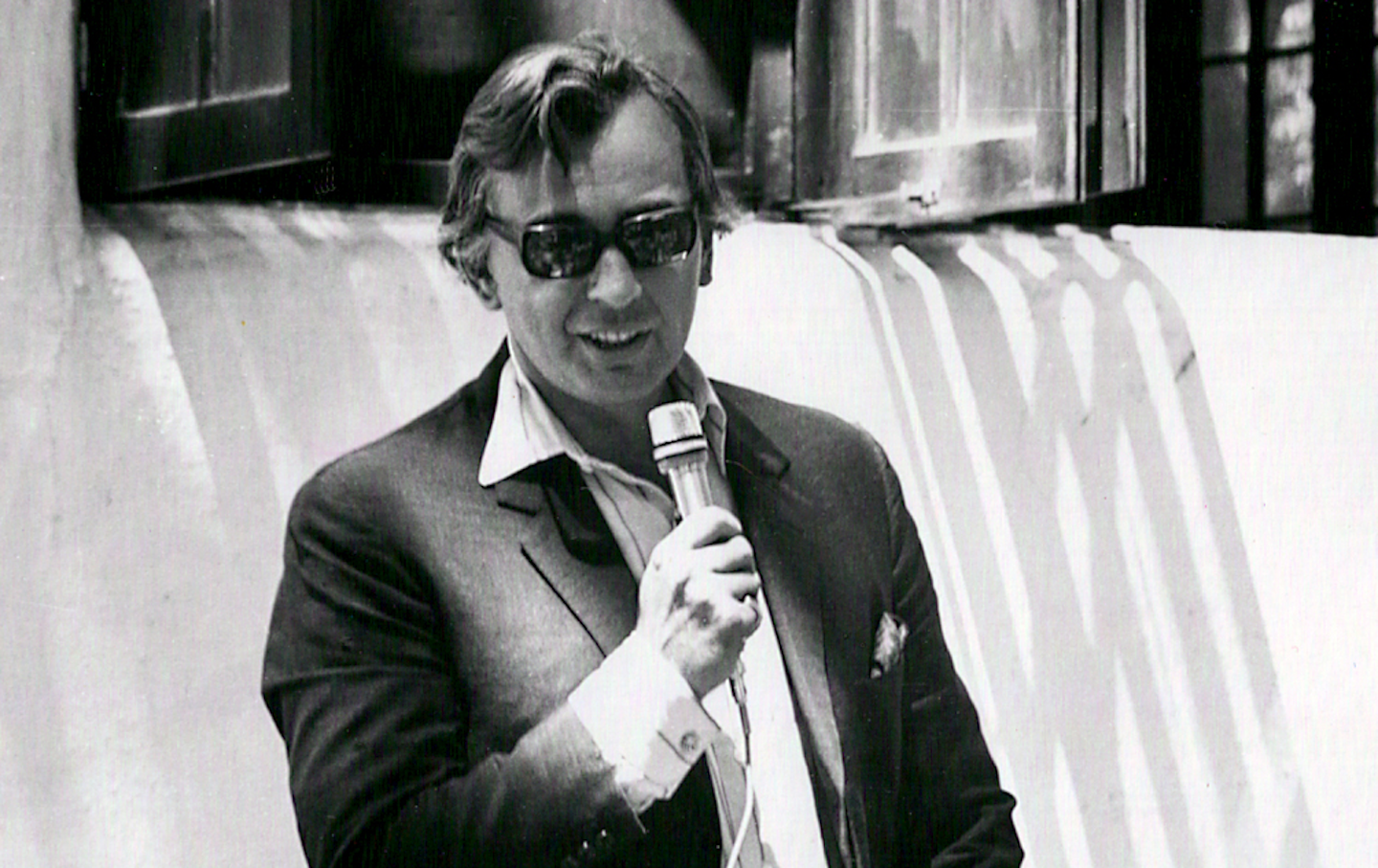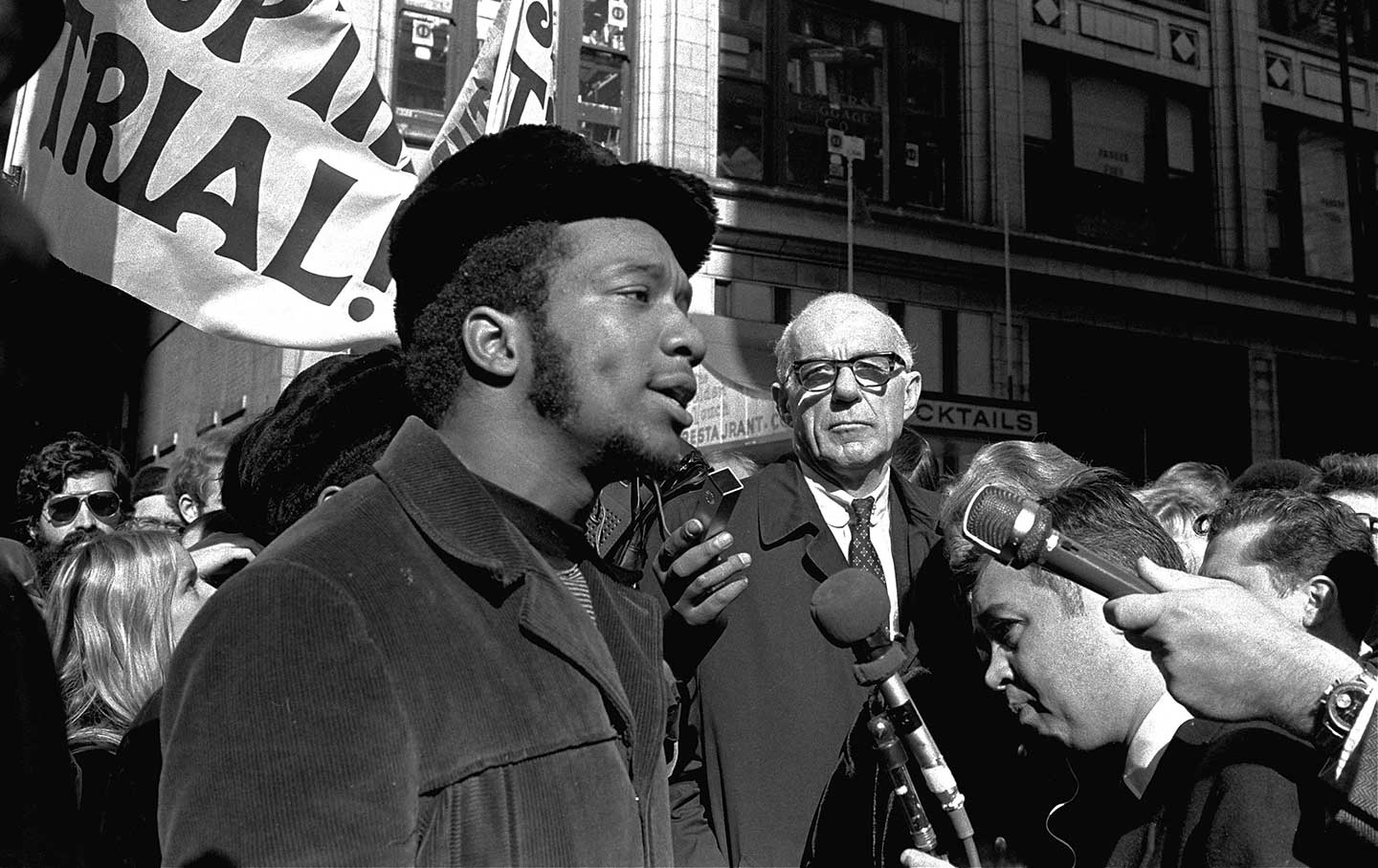
Requiem for the American Empire Requiem for the American Empire
“Empires are restless organisms. They must constantly renew themselves; should an empire start leaking energy, it will die.”
Jan 11, 1986 / Gore Vidal

Hawaii Wakes Up To Pesticides Hawaii Wakes Up To Pesticides
The US Department of Agriculture plans to eradicate three species of fruit fly in Hawaii by spraying suspected carcinogens and mutagens on the islands.
Mar 2, 1985 / W.S. Merwin
Earache Earache
This article originally appeared in the September 11, 1982 issue of The Nation. Diana McLellan is precisely the sort of British journalist I left London to get away from. The Fleet Street gossip column is a hideous invention, at once bullying and, sycophantic. Under the pretense of daring exposure and rapier wit lurks a horrid conformism and a lust for easy targets. As for the style necessitated by this kind of journalism, it is typically arch, gushing and repetitive. Unfunny euphemisms (“confirmed bachelor” for homosexual) are thought of as subversive coinage. The mighty and the famous occasionally use such columns to take revenge on their friends by means of leaks. But, for the most part the scandal page is a banal conveyor belt for received ideas, old gags and witch hunts against the deviant. The really bad gossip writers aren't even reactionary—just boring. McLellan is a soupy blend of both. What on earth, one is moved to inquire, does The Washington Post want with one of these exhibits? The paper has cut down the appearances of “Ear” to four a week, as if to say that it doesn’t really endorse this shop-soiled survivor of the defunct Washington Star, but the comparative rarity of the column’s appearance only makes it look worse. Perhaps Ben Bradlee thinks that McLellan has that elusive Brit cachet? But, no, that can’t be right. Here is a ripe sample from what some have called a wickedly mischievous love-it-or-hate-it-you-must-read-it anthology: “I see you wear a hearing aid too, senator.” “Oh, well, yes. But It’s not because I’m hard of hearing, just helps filter out background noise In the hearing rooms.” “Oh, really? What kind is It?” “Let’s see. Exactly 430.” I wish I had a dollar for every year that has elapsed since I first heard that joke. McLellan attributes it to Senator Charles Percy, which is odd since, for a gossip columnist, she uses blind attributions (“one aide”) more than most—almost as often as she employs the word “darling.” That habit by itself gives the lie to her claim to fearlessness. (In truth, I have never met a gossip columnist who wasn’t a coward.) You can search through this entire collection of cultured pearls without finding a single real gem, a single item that would embarrass anybody rich, famous or powerful. The only tales that are even faintly waspish concern members of the Carter hick entourage, now safely removed from pelf and power. On their own, these are no funnier than the labored gags about ham-fisted servants that used to appear in Punch. (As I had feared, the antique story about gauche dinner guests drinking from their fingerbowls appears here more than once.) Then there’s the pseudo-knowing style of writing. Give ear to this: It is very poor form in Washington to use your host’s bed for any purpose other than storing outer clothing Even a rather hip D.C. crowd was enraged on going to the bedroom of one chic political journalist to retrieve their coats. They found them buried beneath an amorous New York journalist and his then current belle. Everythlng is wrong with that paragraph. The first sentence tells you what the last sentence (I refuse to call it a punch line) is going to be. “Rather hip,” “chic,” “ amorous” and belle" are not naughty or clever; they are tired affectations. And what’s the point of the tale if McLellan doesn’t identify the New York journalist? (I know, but The Nation is for family reading, not sleazy revelations.) On almost every page there is either a breathtaking “so what” story or a whiskered and recycled curio. The line about the man who gets his lab sample back with a note warning that his horse may have diabetes cracked many a grin during the Depression. It’s hardly any better when it’s (allegedly) quoting Walter Mondale on Billy Carter’s beer. Diana McLellan is a sort of sad omnivore. All jokes are funny, all gossip is “scandal,” anything involving people she’s heard of is a revelation about the private lives of the stratospheric. But she has no sorting process. The only “scoop” she ever got—the bugging of Blair House—turned out to be a turkey. She lacks the most basic attribute of a gossip writer—a posture of antagonism. Here she is, revealingly, on the denizens of her Washington beat: The great show rolls on. The players make us mad, they make us laugh, they make us cheer and cringe and blow razzberries and pay taxes. They’ve got an awful lot of guts. I salute them. She does what? Here we are in the Washington of Ronnie and Nancy, with crass vulgarity and foolishness abounding on every side, and The Washington Post has a gossip column that is, by its own admission, perfectly innocuous! Alexander Pope described this kind of courtier coverage very well: Willing to wound and yet afraid to strike Just hint a fault, and hesitate dislike. Alike reserved to blame, or to commend, A timorous foe, and a suspicious friend. McLellan, with a style and a column that grow more ingratiating and desperate every week, is certainly not going to risk offending the supply-side high society. Her reputation, then, is the only really mysterious thing about her.
Sep 11, 1982 / Books & the Arts / Christopher Hitchens
Some Jews & the Gays Some Jews & the Gays
Vidal on the new upper-middle-class Jewish hate of homosexuals.
Nov 14, 1981 / Gore Vidal
Notes on the House of Bondage Notes on the House of Bondage
Baldwin sheds light on the state of America by surveying the dispiriting array of candidates for the 1980 presidential race.
Nov 1, 1980 / Feature / James Baldwin

The Rise of Ronald Reagan The Rise of Ronald Reagan
Ronald Reagan was born in 1911 in rural Illinois.
Jul 19, 1980 / Feature / E.L. Doctorow
Fred Rodell Fred Rodell
Fred Rodell is largely forgotten these days, but as the "bad boy of American legal academia" he inspired several generations of Yale Law School students to think differently about ...
Jun 21, 1980 / Sidney Zion
Open Letter to the Born Again Open Letter to the Born Again
Sometimes, our best efforts at peace are betrayed.
Sep 29, 1979 / James Baldwin
The Farm Workers’ Next Battle The Farm Workers’ Next Battle
A report on the enormous number of farm workers displaced by the farming machines developed at the University of California.
Mar 25, 1978 / Cesar Chavez

Was Fred Hampton Executed? Was Fred Hampton Executed?
Seven years after the shootings of Fred Hampton and Mark Clark by the Chicago police, a civil suit reveals the sordid details behind the assassination.
Dec 25, 1976 / Feature / Jeff Gottlieb and Jeff Cohen
